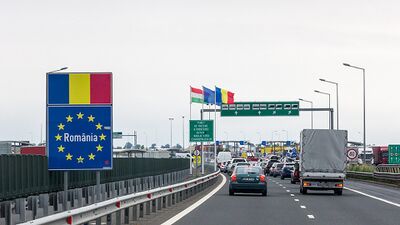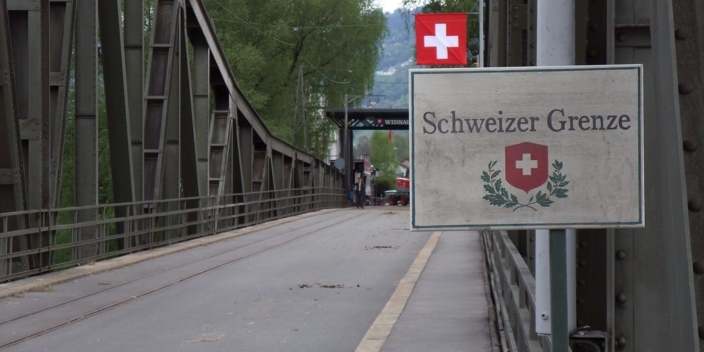#5: From Exception to Legal Routine: Criminalising Dissent in Contemporary Italy
The crisis of the rule of law in recent European history rarely manifests itself through sudden breaks. More often, it unfolds through erosion—by means of a series of formally legitimate acts that gradually shift the institutional balance toward an increasingly central role for the executive. Across Europe, governments are increasingly seeking to circumvent constitutional limits. Laws are being rewritten not to address genuine needs, but to stretch constitutional boundaries—favouring faster, more vertical forms of control that bypass institutional mediation. In Italy, this process of erosion has accelerated in recent years under governments led or supported by right-wing parties.
This shift—probably accellerated by the crisis experienced during the pandemic—has not taken shape through explicit constitutional reform, although attempts have been made to move toward a presidential model. Rather, it has unfolded through the constant and progressive normalisation of a permanent state of emergency, used both as a political narrative and as a means of legitimising the exceptional as ordinary. The increasingly frequent use of emergency government measures has turned the exception into the norm—and law into a tool of exclusion rather than inclusion. A a dynamic that has led to an escalating institutional conflict between the executive and the judiciary, with the government engaging—at times openly—in attempts to delegitimise the courts.
These dynamics may appear to be part of a normal democratic debate. However, when viewed as a whole, they reveal a clear trend: an attempt to concentrate power and erode constitutional safeguards under the guise of formal legality. The most recent example is the adoption of the so-called Decreto Sicurezza (Security Decree) concerning internal security and public order, which has reignited public debate on the use—and misuse—of emergency decrees within the Italian legal system.
The Decree Law in cases of urgency and necessity in the italian constitutional system
In the Italian constitutional system, emergency legislation is governed by Article 77 of the Constitution, which grants the Government the power to adopt provisional measures having the force of ordinary law, the Decree Law, without prior parliamentary authorisation, but only in cases of extraordinary necessity and urgency. These decree-laws must be submitted to Parliament for conversion into ordinary law within 60 days. Over the years, there has been a steadily increasing use of decree-laws by governments of all political leanings—often in the absence of the constitutional requirements of extraordinariness, necessity, and urgency. This trend has gradually consolidated a distorting practice in which the decree-law has become an ordinary legislative tool, bypassing the regular parliamentary procedure. This abuse of emergency decree-laws has exposed a crisis in the principle of separation of powers and in the central role of Parliament. It relies on the narrative of a state of permanent urgency, which ultimately distorts the institutional balance in favour of the executive.
Decreto Sicurezza: The Decree-Law n. 48/2025 and its impact on the constitutional system
The peak of this process was reached with the adoption of the so-called Decreto Sicurezza (Decree-Law No. 48/2025), which has become a paradigmatic case of how the Executive—even in a firmly democratic context such as Italy—can use formally legitimate legal instruments to consolidate its authority and restrict spaces for dissent. The issue in this case concerns not only the content of the legislation but also—and perhaps even more importantly—its procedural structure and the manner in which it was adopted.
The content of the Decreto Sicurezza had originally been introduced—as a draft law and with some modifications—through the ordinary legislative process (art.72), in accordance with the Constitution. The draft law was duly submitted to Parliament for discussion, without deadlines and with broad scope for amendments. Its content sparked intense debate in Parliament, leading to serious disagreements even within the ruling majority and significantly slowing down the legislative process. At that point, the Government intervened in a highly irregular manner by reintroducing the draft law—albeit with some modifications—as a decree-law, thereby removing the bill from full parliamentary debate and sidestepping the normal democratic process. A choice grounded in a distorted use of emergency decree powers—used in this case to shield political content through procedural shortcuts.
The content of the decree itself—focused on public order and the restriction of dissent—has raised significant concern among Italian constitutional scholars, many of whom signed an open appeal for “democratic security” against the decree. Among the provisions that most alarmed magistrates and constitutionalists are those introducing new offences and aggravating circumstances, including the criminalisation of passive resistance and revolt. For instance, road blockades carried out during protests are no longer treated as administrative offences but have become criminal acts. The scope of the urban DASPO—a public space ban that may be imposed by mayors or public security authorities on individual citizens—has been expanded. That means that, during demonstrations, arrests in flagrante delicto will become easier to execute, and sanctions for offences such as resistance or violence against public officials have been increased.
The introduction of new offences, along with harsher sanctions for those engaging in protest, reflects a dangerously expansive use of emergency decree-laws in the field of criminal law. This is, at the very least, a troubling attempt to repress dissent, in violation of articles 1, 17 and 18 of Constitution, by increasing and tightening criminal sanctions—something that cannot be legitimately imposed through emergency legislation. The decision to criminalise a specific form of conduct must rest with Parliament, following careful deliberation and democratic debate—something that was precluded in this case by the use of a decree-law.
Concluding remarks
By emphasising public order, repression, and the restriction of dissent—rather than liberty and fundamental rights—the Decreto Sicurezza reflects a broader strategy in which formal legal requirements are respected in appearance but emptied of substance. Constitutional guarantees are not abolished, but their effectiveness is eroded; the role of Parliament is not denied, but curtailed through urgency procedures. In political discourse, “security” becomes a means of producing consent, managing conflict, and strengthening executive power. This decree is therefore part of a broader systemic strategy aimed at concentrating power in the hands of the executive.
In this sense, the Italian experience is not only a national concern but also sheds light on wider dynamics at play in other European legal systems. The defence of the rule of law depends in part on our collective ability to recognise structural transformations that occur even when legal formalities are observed. This is one of the most insidious challenges European democracies face today.







Reacties